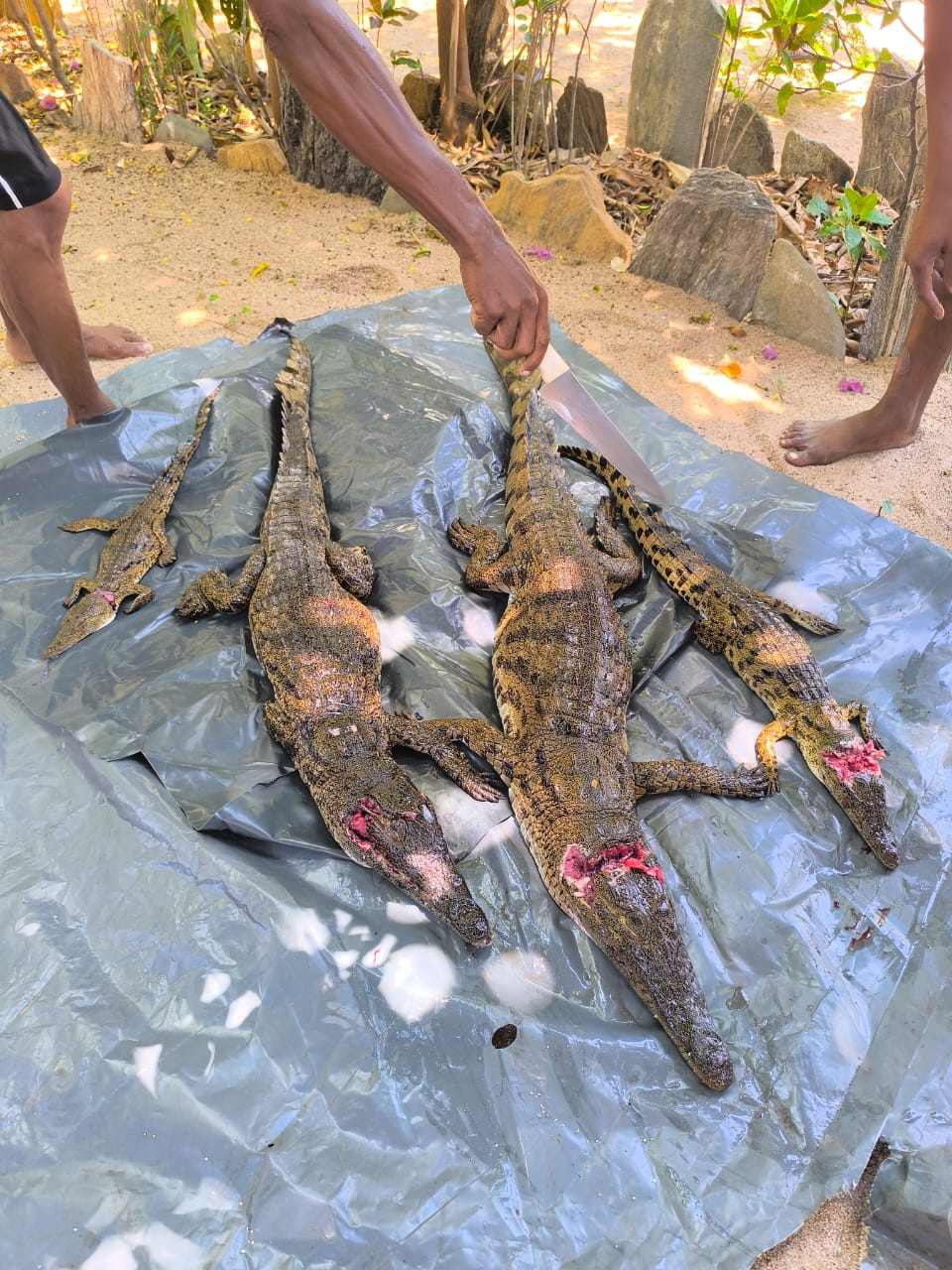
* Four crocodiles were tracked and shot dead on the night of Monday, November 24 while the 5th was taken down on Tuesday, November 25
* The problem reptiles were tracked and eliminated in Nkhwazi, Madimba and Chinyanya areas, where recent sightings and attacks had been reported
By Kennedy Minjale and Ireen Mseteka, MANA
Likoma District Council has confirmed the killing of five problem wildlife crocodiles that had been threatening communities and tourists along the lakeshore in recent weeks.

Advertisement
Likoma Council’s director of administration & human resources, Moses Jere, said four crocodiles were tracked and shot dead on the night of Monday, November 24 while the 5th was taken down on Tuesday, November 25.
The problem reptiles were tracked and eliminated in Nkhwazi, Madimba and Chinyanya areas, where recent sightings and attacks had been reported.
“To us as a council, this is very good news because it is what we have been looking forward to solving,” Jere told Malawi News Agency (MANA). “What this means is that Likoma is now a safer place to live in, as people had become scared due to the recent crocodile attacks.”

Moses Jere
A crocodile hunter, who requested anonymity, said his work aims to protect communities whose lives depend heavily on Lake Malawi, saying: “When people are at risk, we come to help, because you never know, one day the crocodile might attack our relations, someone we know, or anyone.”
Tourism stakeholders on the island also welcomed the killings, saying the reduced number of the problem reptiles action will restore confidence among visitors and protect the island’s reputation.
Director for Likoma Team Adventure, Yusuf Asima, said: “As tourism sector players, we are aware of the impact this situation had on our visitors. Having crocodiles around can deter people from visiting, but we are hopeful that the recent action will reassure tourists that Likoma is still a safe and enjoyable destination.”
District Tourism Officer Joice Semu added that the development will help safeguard the island’s reputation: “Considering the attacks that had been happening, Likoma risked being labelled a dangerous destination.
“Now that the crocodiles have been killed, we believe the island’s reputation will be maintained,” she said.
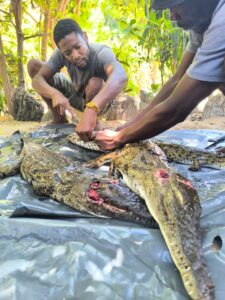
The coordinated efforts by the district council, local hunters and tourism stakeholders aim to ensure both residents and visitors can safely enjoy lake-related activities such as swimming and boat tours.
Just recently, Malawian wild game hunter, Ian Bartlett, announced the launch of his book entitled; ‘Memoirs of a Real Crocodile Hunter’, in which he chronicles his experiences he has in dealing with problem animals that threaten people’s livelihoods.
In an interview last month, Bartlet — who had been posting his crocodile hunting on his Facebook account — said he decided to put his experiences in the wild in book form having worked closely with the Department of National Parks and Wildlife for over 10 years to help rural communities deal with problem animals — from crocodiles and hyenas to buffaloes that threatened lives and livelihoods.
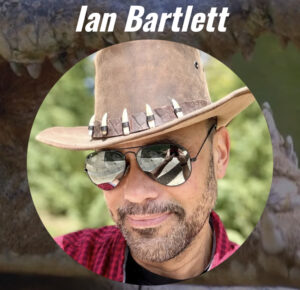

Now based in the United Kingdom, the seasoned professional crocodile hunter, adventurer, and storyteller with a lifetime of experience in the African wilderness, says his adventures in ‘Memoirs of a Real Crocodile Hunter’ are “filled with thrilling encounters, hard-earned wisdom, and the untold realities of life as a hunter in Africa”.
“I responded whenever National Parks called for help,” Bartlett recalls. “Sometimes it was a man-eating crocodile in the Shire River, sometimes hyenas attacking livestock, or buffaloes that had become aggressive — it was dangerous work, but it had to be done.”
The book is now available internationally through Amazon, Waterstones, Blackwell’s, and ThriftBooks, which Bartlet says the story is not just about him — it’s about the courage of our people and the beauty of our country” — while encouraging a culture of storytelling on Malawian culture and experiences to market the country’s tourism industry.
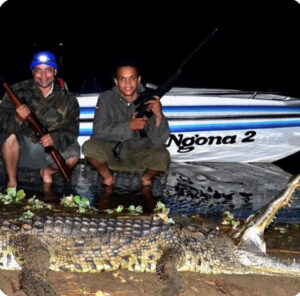
Former Licensing & Permits Officer, Alphius Lupiya for the Department of National Parks and Wildlife (DNPW), attested to that he will always look back on his years he worked with professional crocodile hunters, with a sense of pride — and that among those experiences, his association with Ian Bartlett stands out.
“I strongly recommend this memoir as an authentic and invaluable record of a remarkable chapter in Malawi’s wildlife history, written by a man whose work was carried out under law, and in service of communities facing the daily realities of living alongside dangerous animals.”
Lupiya explained that the DNPW has long established laws and regulations governing both the sustainable use of wildlife and the control of problem animals — and in particular, the National Parks and Wildlife Act (Cap. 66:07, as amended in 2004) provides the legal framework under which all forms of hunting are regulated.
During his tenure and up to now, professional crocodile hunting is a recognised and licensed activity, carried out under strict provisions of this Act and under direct supervision of DNPW officers.



Advertisement
He describes Bartlett that from the the outset, he impressed DNPW with “his seriousness of purpose, his preparedness, and his commitment to operating within the law: Over time, I came to regard him as one of the few hunters who could truly be called professional in both skill and conduct.”
He emphasised that Malawi, like much of Africa, has long faced serious conflicts between people and wildlife and the crocodiles in particular have attacked villagers, destroyed livestock, and disrupted lives along the riverbanks.
Thus, as the DNPW has the mandate to respond, resources were always been limited through restricted budgets, lack of equipment — and as the sheer scale of demand often outstripped they capacity, they relied on professional crocodile hunters to step in as partners in those critical moments, “taking on dangerous tasks that directly protected communities”.
“Today, such hunting is far less common, owing to habitat loss, overfishing, and the increasing presence of human settlements along rivers. Yet the importance of addressing human-wildlife conflict remains as urgent as ever.”—Additional reporting by Duncan Mlanjira, Maravi Express
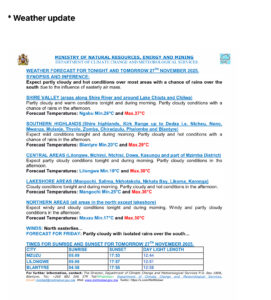

Those tiny little crocs pose no threat to anyone, and it could lull people into a false sense of security since bigger crocs are still around. Not an intelligent or well-planned move by any measure.